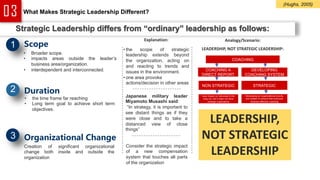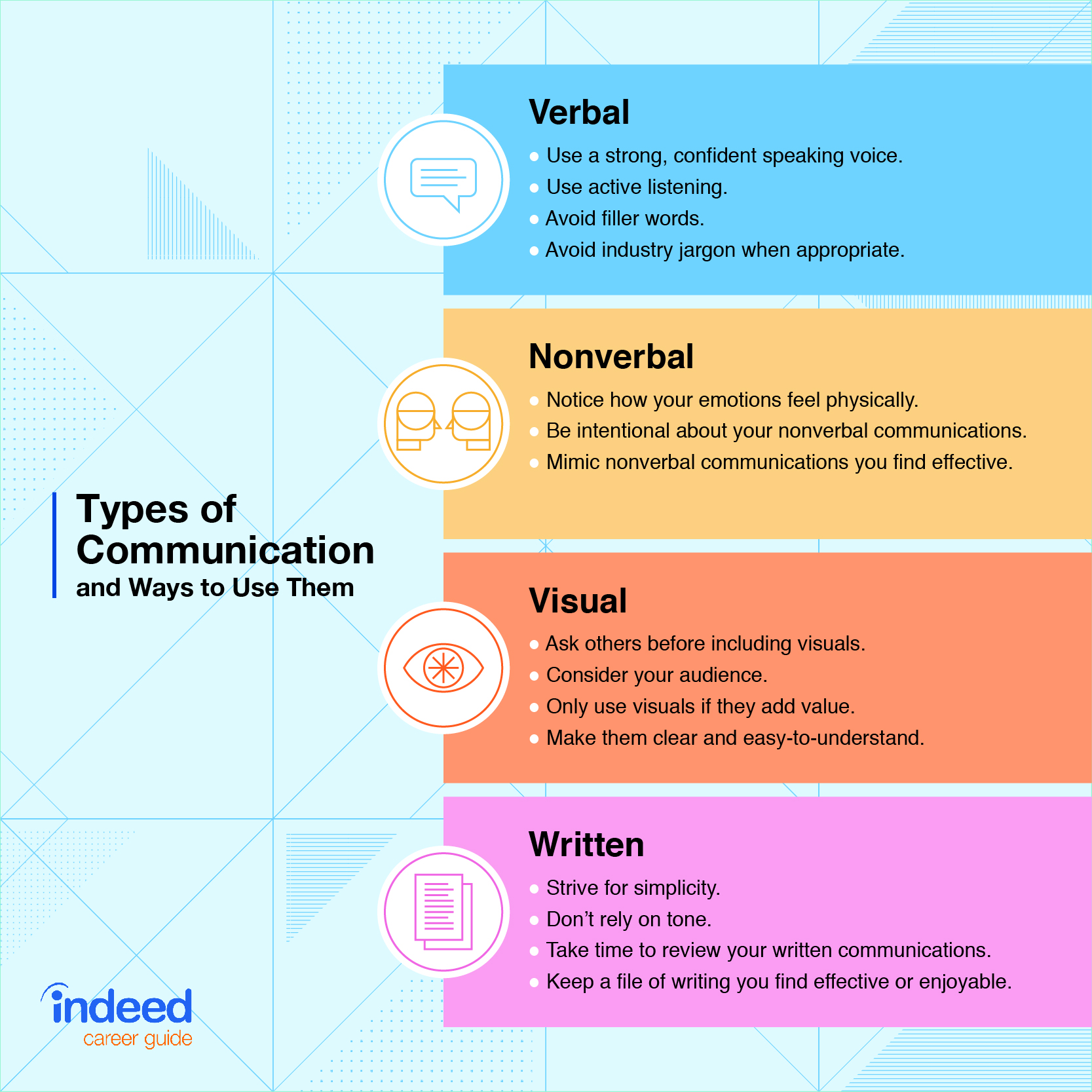Imagine a world where leaders possess the mystical ability to inspire, motivate, and rally their team with just a flick of their magic wand (or in this case, a well-crafted email). While we may not have access to actual sorcery, there are indeed secrets to effective leadership that can make you feel like you’re conjuring success out of thin air. So buckle up, dear reader, as we embark on a journey to unlock the secrets of effective leadership and uncover the hidden powers that lie within us all.
Key Traits of Successful Leaders
Successful leaders possess a unique blend of traits that set them apart from the rest. They have a certain je ne sais quoi that makes people want to follow them to the ends of the earth. So, what are these key traits that make a leader truly great? Let’s dive in!
- **Charisma:** Successful leaders have charisma in spades. They’re like a magnet, drawing people towards them with their charm and wit. It’s like they have a secret superpower that makes everyone want to be in their presence.
- **Confidence:** A successful leader exudes confidence. They walk into a room like they own the place, and everyone can’t help but be in awe of their self-assuredness. They truly believe in themselves and their vision, and it shows.
- **Empathy:** Despite their powerful presence, successful leaders also have a soft side. They care deeply about the people they lead and take the time to listen to their concerns. They understand that empathy is key to building strong relationships and creating a loyal team.
So, if you want to be a successful leader, take a page out of the playbook of the greats. Cultivate your charisma, boost your confidence, and never forget to show empathy towards others. Who knows, you might just be the next great leader in the making!
The Importance of Emotional Intelligence in Leadership
Picture this: a leader who has all the technical skills and knowledge to run a company, but lacks the emotional intelligence to connect with their team. It’s like having all the ingredients to bake a cake, but forgetting to turn on the oven. Emotional intelligence is the secret ingredient that makes the cake rise, or in this case, makes a leader truly effective.
So, why is emotional intelligence so crucial in leadership? Well, for starters, it allows leaders to understand and manage their emotions in high-pressure situations. No one wants to follow a leader who throws a tantrum every time things don’t go as planned. With emotional intelligence, leaders can keep their cool and inspire confidence in their team, even when the going gets tough.
Furthermore, emotional intelligence helps leaders to empathize with their team members. By putting themselves in their employees’ shoes, leaders can build stronger relationships, foster trust, and create a positive work environment. After all, who wouldn’t want to work for a boss who actually cares about their well-being?
In conclusion, emotional intelligence is like the Swiss Army knife of leadership – versatile, essential, and capable of solving almost any problem. So, if you want to be a truly effective leader, don’t just focus on sharpening your technical skills. Take the time to develop your emotional intelligence as well. Your team will thank you for it, and who knows, you might just become the next great leader everyone admires!

Building Strong Communication Skills
Communication skills are like building a house – you need a sturdy foundation, strong walls, and a well-thought-out design. To construct the perfect communication fortress, you’ll need to follow these steps:
- **Active Listening**: No eavesdropping allowed! Give the person you’re speaking with your full attention, nodding along like a bobblehead.
- **Clear and Concise**: Don’t beat around the bush like a lost lumberjack. Get straight to the point and avoid confusing your audience with unnecessary jargon.
- **Body Language**: Your words might say one thing, but your body could be screaming something else. Keep your posture open and inviting, like a hug from a friendly giant.
Once you’ve laid the groundwork for strong communication skills, it’s time to add some flair. Sprinkle in some humor like confetti at a clown convention – just make sure your jokes are tasteful and won’t offend anyone.
Remember, communication is a two-way street. It’s not just about talking, but also listening and understanding. So grab your tool belt and get to work on building those communication skills. Before you know it, you’ll be the Chip Gaines of conversations!

Fostering a Culture of Trust and Transparency
In order to foster a culture of trust and transparency within our organization, it is important to establish open lines of communication. This means encouraging honest and open dialogue among team members and management.
One way to promote transparency is by sharing information openly and regularly. This can include updates on projects, company goals, and even challenges that the organization may be facing. By keeping everyone in the loop, trust can be built and maintained.
Another key aspect of creating a culture of trust is by being authentic and genuine in our interactions. This means being honest about our strengths and weaknesses, as well as admitting when mistakes are made. It’s okay to not have all the answers, as long as we are willing to work together to find solutions.
Ultimately, by , we can create a supportive and collaborative environment where everyone feels valued and respected. This will lead to increased productivity, stronger relationships, and a more positive work culture overall.

Developing Empathy and Understanding for Others
Do you ever find yourself struggling to see things from someone else’s perspective? Maybe you’re convinced that your way is the only right way, or perhaps you just can’t wrap your head around why someone would behave a certain way. Well, fear not! is not only possible, but it can also be a lot of fun!
One great way to practice empathy is by putting yourself in someone else’s shoes. Literally. Walk a mile in their footwear and see how it feels. Maybe you’ll gain a newfound appreciation for their struggles, or maybe you’ll just end up with blisters. Either way, it’s a win-win!
Another tip for developing empathy is to engage in active listening. Put down your phone, stop thinking about what you’re going to have for dinner, and really listen to what the other person is saying. Try to see things from their perspective, even if it means temporarily suspending your own belief that pineapple does not belong on pizza.
And finally, don’t be afraid to ask questions. The more you learn about someone else’s experiences, the easier it becomes to understand where they’re coming from. Plus, who knows? You might even discover a shared love of 90s boy bands or a mutual hatred of cilantro. The possibilities are endless!
Strategies for Motivating and Inspiring Your Team
When it comes to motivating and inspiring your team, it’s important to remember that the key to success lies in keeping things fun and engaging. Here are a few strategies to help you keep your team motivated and inspired:
- Set achievable goals: Make sure you are setting goals that are challenging, yet attainable. This will give your team a sense of accomplishment when they reach their targets.
- Reward hard work: Recognize and reward your team members for their hard work and dedication. Whether it’s a small treat or a pat on the back, a little appreciation can go a long way.
- Encourage creativity: Allow your team members to think outside the box and come up with new ideas. This will not only keep things fresh and exciting but will also boost morale and motivation.
- Provide opportunities for growth: Help your team members develop their skills and advance in their careers. Whether it’s through training programs or mentorship, investing in their growth will keep them motivated and inspired.
Utilizing Feedback for Continuous Improvement
Feedback is like kale smoothies – it may not always be the most appetizing, but it’s good for you. In the world of continuous improvement, feedback is the secret sauce that helps us level up our game. So, how can we make the most out of the feedback we receive?
First off, let’s embrace feedback like a long-lost friend. Whether it’s positive or negative, treat feedback as a gift that has the power to transform you from a regular Joe Schmoe to a feedback connoisseur. Look at feedback as an opportunity to grow and learn, rather than a critique of your character or abilities.
Next up, let’s get organized with that feedback. Create a feedback journal or spreadsheet to track the comments, suggestions, and insights you receive. This will not only help you identify patterns and trends but also show your commitment to continuous improvement. Remember, a well-organized feedback system is like catnip for improvement junkies.
Now, it’s time to take action on that feedback. Set goals based on the feedback you receive and create a plan of action to implement those changes. Whether it’s attending a workshop, seeking mentorship, or simply making small tweaks to your routine, every little step counts towards improvement. Remember, Rome wasn’t built in a day, and neither will your feedback-led transformation.
FAQs
Why is effective leadership important in a professional setting?
Well, if you enjoy chaos, confusion, and missed deadlines, then effective leadership probably isn’t important to you. But for the rest of us, having strong leadership can keep projects on track, boost team morale, and ultimately lead to success.
What are some key qualities that make a leader effective?
Aside from having killer dance moves and a love for puppies, effective leaders are typically great communicators, can make tough decisions, inspire others, and have a clear vision for where they want to go (preferably not straight into a brick wall).
How can someone improve their leadership skills?
Practice, practice, practice! Just like playing the piano or perfecting your TikTok dance moves, leadership skills take time to develop. Seek out mentorship, read books on leadership, and don’t be afraid to fail (just maybe not in front of your entire team).
What can happen when a leader is ineffective?
Prepare for the storm clouds to roll in! When a leader is ineffective, teams can become disorganized, unmotivated, and ultimately start looking for the nearest escape route. It’s like trying to navigate a ship without a captain – disaster is bound to strike.
How can a leader create a positive and productive work environment?
Step one: ban all office clowns (no, seriously, they’re distracting). Step two: foster open communication, encourage teamwork, provide opportunities for growth, and don’t forget to sprinkle in a healthy dose of humor (preferably puns, but knock-knock jokes will do in a pinch).
—
In Conclusion: Leading the Way to Success!
Now that you’ve unlocked the secrets of effective leadership, go forth and conquer the world! Lead your team with confidence, inspire them with your vision, and always remember to lead by example (unless that example involves dancing on tables at the office party – maybe save that for team bonding events).
So go ahead, put on your leadership cap (figuratively, of course) and show the world what you’re made of. Remember, with great power comes great responsibility…and a whole lot of awkward team-building exercises.
Good luck, future fearless leader!



